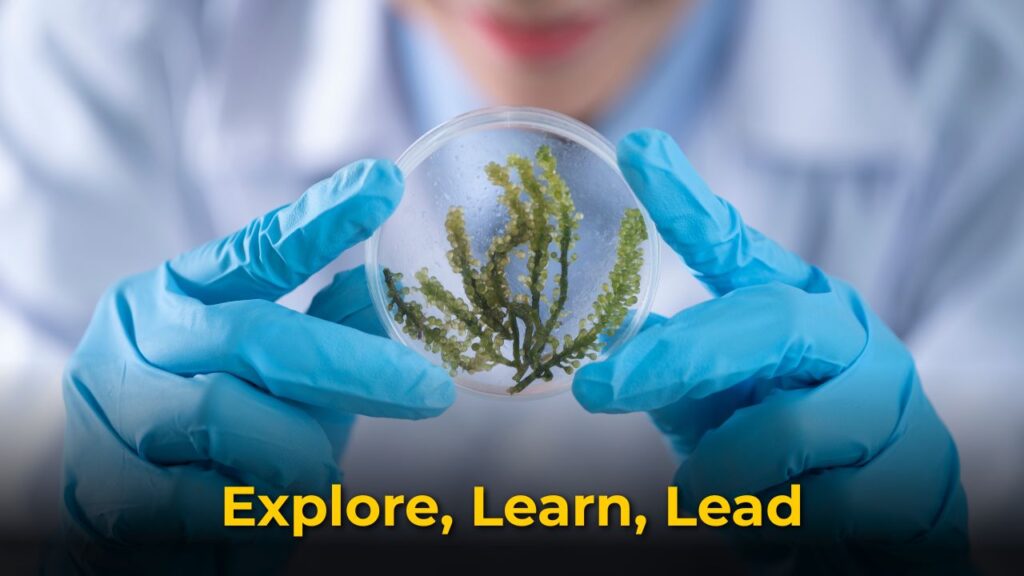In today’s fast-evolving science and technology landscape, staying relevant is no longer optional. It’s essential. With rapid advancements in AI, robotics, biotechnology, and quantum computing, professionals must continuously adapt to remain competitive. The key lies in exploring emerging trends, committing to lifelong learning, and embracing leadership roles in innovation. Whether you’re an engineer, researcher, or industry leader, proactively upskilling can unlock new opportunities and ensure long-term career growth. This blog delves into how you can explore new frontiers, learn in-demand skills, and lead with confidence in the dynamic era of science and technology.
Introduction: Delving Deeper into the Concepts of Science and Technology
Science and technology are the twin engines driving global progress, shaping industries, transforming societies, and solving complex real-world challenges. While science focuses on understanding the natural world through observation, experimentation, and analysis, technology applies that scientific knowledge to develop tools, systems, and innovations that enhance human capabilities and efficiency. Together, they form the foundation of everything from healthcare advancements and climate modeling to AI systems and space exploration.
In today’s knowledge-driven world, delving deeper into the principles and applications of science and technology is essential for professionals aiming to stay ahead. It’s not just about keeping up with trends; it’s about developing a mindset rooted in curiosity, analytical thinking, and problem-solving. This means acquiring not only theoretical knowledge but also practical, hands-on experience with emerging tools, frameworks, and research methodologies.
One of the most effective ways to deepen this understanding is through advanced academic programs that bridge foundational science with cutting-edge technology. Institutions like IISc Bangalore, renowned for their excellence in scientific research and innovation, offer specialized courses that empower learners with future-ready expertise. These IISc Bangalore courses are designed to cater to working professionals, engineers, and researchers looking to build mastery in areas such as AI, data science, computational biology, sensor technologies, and more.
By engaging in such rigorous, research-backed learning, professionals can enhance their critical thinking, contribute meaningfully to innovation, and lead the next wave of technological transformation across industries. Exploring science and technology at a deeper level isn’t just valuable. It’s vital.
How to Stay Ahead of the Curve?
In a rapidly evolving scientific and technological landscape, staying ahead of the curve requires more than just keeping pace,it demands a proactive mindset. Exploring emerging technologies, committing to continuous learning, and developing leadership skills are essential strategies for professionals who want to stay relevant and impactful in their fields.
- Explore Emerging Technologies
To stay competitive, professionals must actively track and understand technologies shaping the future, like AI, quantum computing, synthetic biology, and space tech. Gaining awareness of these innovations helps identify opportunities for contribution and adaptation in one’s domain. Engaging with industry insights, attending innovation forums, and collaborating across disciplines builds the foresight needed to navigate disruption. Exploring such technologies isn’t about mastering all; it’s about knowing what’s next and how it connects to your expertise.
- Learn Continuously with IISc Courses
In the age of accelerated innovation, ongoing learning is essential. Whether it’s deepening subject knowledge or acquiring new technical skills, continuous education helps professionals adapt, solve complex problems, and remain industry-relevant. Programs such as IISc courses offer structured, research-led learning designed to meet the evolving needs of working professionals. They allow learners to keep pace with emerging trends, integrate academic insights into real-world applications, and cultivate a mindset of intellectual curiosity and growth.
- Develop Leadership Skills
Technical know-how alone isn’t enough to lead in science and tech-driven industries. Leadership today means being able to guide teams through change, think strategically, and communicate across functions. By developing emotional intelligence, decision-making ability, and collaborative skills, professionals can influence innovation and create value beyond technical execution. Leadership development also involves learning how to manage ambiguity, drive ethical outcomes, and align technological advancement with broader organizational goals.
Conclusion
As the science and technology landscape continues to evolve at a rapid pace, staying relevant demands more than passive observation; it calls for active engagement. By exploring emerging innovations, committing to continuous learning, and stepping into leadership roles, professionals can future-proof their careers and drive meaningful impact. The ability to adapt, upskill, and lead with a tech-forward mindset is what will distinguish tomorrow’s innovators from today’s followers. Whether you’re advancing your expertise through real-world projects or enrolling in specialized programs like those offered by leading institutions, the journey to staying relevant begins with one step: choosing to grow. In the science and tech era, those who explore, learn, and lead will shape the future.




